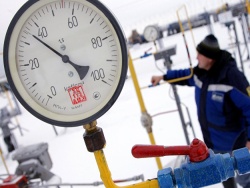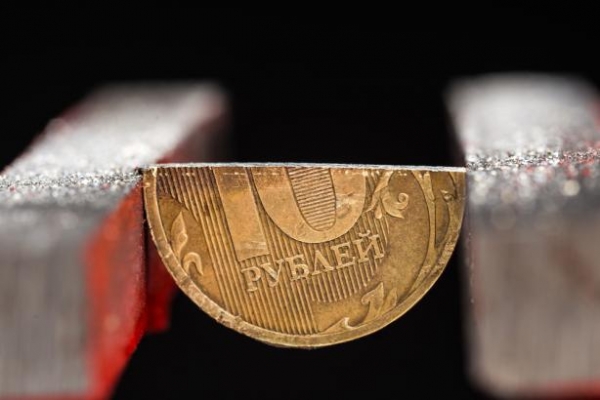
A major figure in the G20 summit, which took place in September 2016 in China, became the President of Russia Vladimir Putin. This was facilitated not only by political reasons: the Russian leader received more popularity in the international media thanks to an unexpected gift – a box of Russian ice cream, which Vladimir Putin personally handed Chinese President XI Jinping. “The taste of your ice cream is better because your thick cream,” said the grateful owner of the summit. It is not surprising that this situation will turn profitable for the Russian producers of ice cream, and soon shipments of this product in the Chinese market will increase significantly (now they are symbolic of several tons per year, although already firmly occupied its niche).
And this is just a small episode, illustrating the smooth rotation of the Russian market of export goods to the East. Despite a number of difficulties related to business practices, language and cultural differences, today, trade between the Russian Federation and its highest priority Eastern partner – China – is developing very successfully.
According to official data, exports from Russia to China in 2015 amounted to $33 billion, and Russia ranked 16th place in the ranking of the top 20 trading partners of China. At the same time for Russia, China remains a major export partner.
Currently, about 30% of Russian exports to China are food, which are in increasing demand. Basically, China buys from Russia the fish and meat products. However, given the Chinese fashion on a healthy diet, combined with the fact that China is not traditionally bred cows, in the first place is the Russian dairy products. Ordinary village milk, not soy, is considered in China as one of the most useful health products for which fans of a healthy lifestyle are willing to pay a lot of money.
In addition to dairy products in 2015-2016, dramatically increased the export of Russian chocolate, sunflower oil, beer and honey in China. High demand for these products due to the fact that the basis of Russian food is much more natural ingredients than the Chinese counterparts.
In addition to the growing popularity of food products from Russia, another profitable article of export to China at the end of 2015 was selling amber. Amber is very popular in China as a symbol of wealth, prosperity and well-being. And the Chinese are willing to pay for the symbolism is real money: the price for the Russian amber soared to 60% in the past year. The buyers from China did not become less.
The remaining 70% of Russian exports to China is energy and commodities. From Russia to China are electricity, timber, oil, gas and minerals (especially base metals). In the Chinese commodities market are all leading Russian companies.
So, in 2016, Russia has become the largest exporter of oil to China: Rosneft supplies to the Chinese market 75% of the black gold consumed in China. The volume of oil supplies from Saudi Arabia to China was 7 times less. Victory in the competition with Saudi Arabia (until recently the main supplier of oil to China) has led to the growth of shares of “Rosneft” more than 30% for the first half of 2016.
One of the largest Russian company Gazprom is building a gas pipeline “Power of Siberia” to provide unprecedented supply gas to China. The project will be implemented by 2021 and promises the Russian economy a substantial profit.
However, the trade partnership with China does not end with the export of Russian agricultural products and raw materials. In addition, Russia is stepping up cooperation with China in the field of space exploration. So, after successful negotiations on the protection of intellectual property in the field of missile and space technologies, held in the summer of 2016, Russia is prepared to supply China with rocket engines RD-180, which have no analogues in the world: this engine also buy USA for use on their native Atlas 5. It should be noted that the Russian side is interested in attracting Chinese colleagues to use the newly built Vostochny cosmodrome, which has successfully started its work in April 2016, and is only 100 km from the border with China.
After the September G20 summit in 2016 in cooperation between Russia and China is expected to breakthrough in the financial sector. Until the end of the year, the Russian Vnesheconombank (VEB) for the first time to issue bonds in yuan, and it will be the first such experience of borrowing in the Chinese currency. In particular, in the framework of the Eastern economic forum, which took place in September 2016, VEB signed an agreement with 10 Chinese commercial banks on raising a syndicated loan of 10 billion yuan ($1.5 billion). This deal means that the Russian banking system was another source of funding abroad in one of the reserve currencies. After 1 October 2016, RMB will get in the basket of global reserve currencies, the IMF of 10.92%, taking third place after the dollar (old 41,73%) and the Euro (30,93%).
Moreover, this year, about 20 Russian companies, including financial institutions, industrial companies and even governmental agencies, will be placed on the Chinese securities market, the bonds in the amount of approximately $300 million Is a little while, however, this segment of the market only started to develop because prior to 2015, the debt market of China has not allowed foreign investors. However, the market yanevych bonds has been operating for over 11 years, lately with a yield of about 20% per year, and, consequently, the yield of Russian business in the Chinese debt market promises great prospects.
In conclusion, I would like to note that China is a huge unexplored space, which the Russian business is trying to master. The fact that Russian companies have begun to penetrate the markets of China, marks the beginning of a new era in relations between Russia and China. It is known that the economic cooperation is a political and cultural rapprochement. This means mutual prosperity of the two giants – Russia and China for peace and stability in the Asia-Pacific region.








